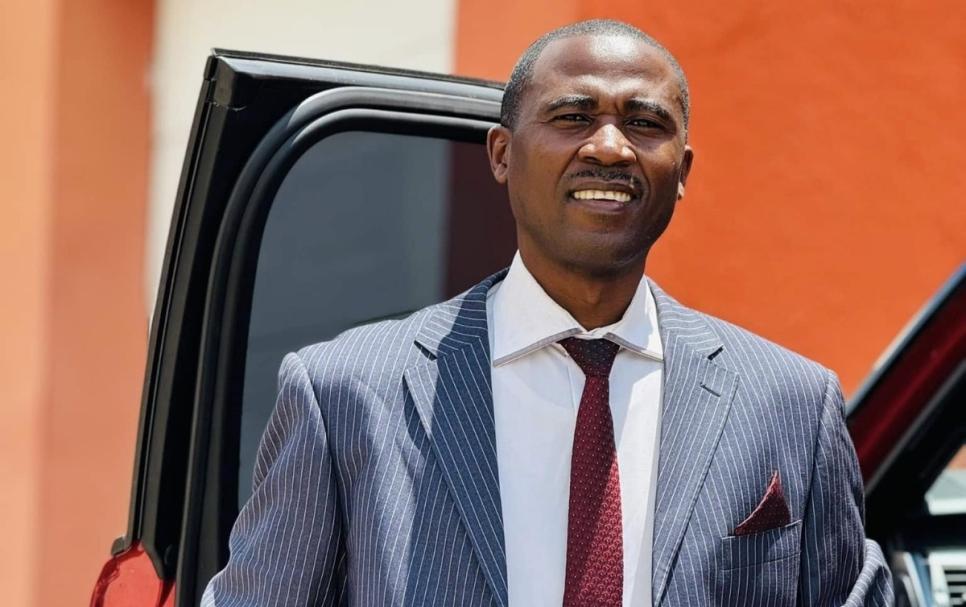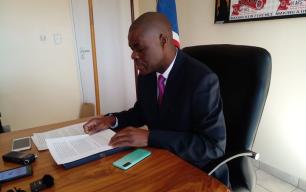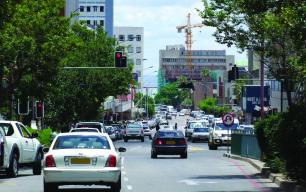Medicine shortage sparks concern

(as Patients Are Turned Away)
Windhoek residents are
facing severe medicine
shortages at public clinics,
with patients in areas such as
Hakahana, Katutura, Khomasdal,
and Otjomuise struggling to access
essential healthcare. Many endure
long queues, only to be turned
away without medication, forcing
them to buy expensive drugs from
private pharmacies.
At Hakahana Clinic, patients arrive
as early as 5:30 AM, hoping for
treatment.
“I arrived before sunrise for my
blood pressure pills, but they are
only telling me at 11:45 to come
back next week. I can’t afford to buy
them elsewhere,” said a 62-year-old
pensioner reliant on chronic medication.
Similar situations are reported
at Otjomuise and Katutura
clinics, where antibiotics and painkillers
are frequently out of stock.
A pharmacist at Khomasdal
Clinic expressed frustration: “This
is happening across Windhoek.
Patients wait in line for hours, only
to be told there is no medicine. It is
heart-breaking to see elderly people
leave empty-handed after spending
almost half a day in the queue.”
Healthcare workers, overwhelmed
by growing patient numbers,
report a worsening crisis. A
nurse at Katutura Clinic, speaking
anonymously, described the strain:
“We are working under impossible
conditions. People blame us, but we
have no medicine to give.”
While this crisis is observed
across the Khomas region, it is a
nationwide concern. In northern
and eastern areas, allegations of
medicine theft surface. Sources,
speaking anonymously to Confidente,
claim some rural health
workers sell medications.
“There are nurses who are selling
medicine in our villages while the
same nurses are denying patients’
medicine, saying there’s no stock
at their pharmacies,” one source
revealed.
“At the end of the day, you see
these people selling medicine to
locals or giving medicines to their
loved ones in exchange for something.
It has been happening for
years, and no one is speaking up,”
another source stressed.
LOSING FAITH IN SYSTEM
Responding to public frustration,
Health Ministry spokesperson
Walters Kamaya acknowledged
the crisis, citing multiple factors
contributing to the shortages. He
explained Namibia’s reliance on
imported medicines makes it vulnerable
to global supply chain disruptions.
“Manufacturing delays, shortages
of raw materials, shipping congestion,
and geopolitical events all
play a role in affecting medicine
availability,” he said.
He added that bureaucratic delays
in the national procurement
process, funding constraints, and
logistical challenges in delivering
stock to remote clinics further
complicate the situation.
“Delays in tendering, supplier
performance issues, and difficulties
in accurately forecasting national
needs have led to gaps in supply.
Budgetary constraints also limit the
quantities we can procure,” Kamaya
explained.
He highlighted that medications
in high demand include chronic
disease drugs for hypertension, diabetes,
and tuberculosis, as well as
antibiotics, antimalarials, and pain
relievers. The shortages are putting
patient care at risk.
“Patients with chronic illnesses
are forced to go without their medication,
which leads to worsening
health conditions and complicacomplications,”
he said.
“Doctors have no choice but to
prescribe alternatives that may be
less effective, and in some cases, patients
are simply turned away.”
The crisis also strains frontline
healthcare workers. “People are
losing faith in the public health system,”
Kamaya admitted.
“The lack of available medicine
not only impacts individuals’ health
but also puts additional pressure on
our staff, who must deal with the
consequences of these shortages.”
Addressing allegations of healthcare
workers stealing and selling
government medicine, Kamaya
said the Ministry requires concrete
evidence to act.
“Theft of medical supplies is a
criminal offense and undermines
public trust in the healthcare system.
The Ministry has zero tolerance
for corruption and will take
disciplinary and legal action against
anyone found guilty of such activities,”
he stated, urging the public to
report wrongdoing.
Beyond theft, restocking faces
challenges. Kamaya cited supplier
issues, delayed budget disbursement,
and logistical hurdles in delivering
stock from Central Medical
Stores to regional depots and
clinics.
“Even when medicines arrive in
the country, strict regulatory assessments
by the Namibia Medicines
Regulatory Council can delay
distribution. Transporting stock to
rural areas also remains a challenge
due to infrastructure limitations
and supply chain bottlenecks.”
The procurement process is
lengthy. “Each step presents potential
delays, whether its contract
disputes, supplier failures, or transportation
breakdowns,” Kamaya noted.
To mitigate the crisis, the Ministry
of Health and Social Services
(MoHSS) is working to improve
supply chain management and
strengthen pharmaceutical services.
Kamaya outlined the Ministry’s
role, including securing sufficient
budget allocations, improving
procurement efficiency, monitoring
stock levels, and engaging
stakeholders. “We are committed
to strengthening pharmaceutical
services by employing more skilled
professionals and adopting best
supply chain practices,” he assured.
With no immediate resolution
in sight, patients face a difficult
choice: wait for restocked medicines
at public clinics or pay for
private alternatives. As the crisis
deepens, Namibians call for urgent
action to prevent more lives from
being put at risk.
BUDGETARY PROVISION
Meanwhile, it has emerged that
government has made budgetary
provision for the procurement of
pharmaceuticals, among other
ministerial needs for the Ministry
of Health and Social Services this
financial year. In the just tabled national
budget, Finance and Social
Grants Minister, Ericah Shafudah,
allocated monies to the tune of
N$12.3Billion to that ministry for
the year, with a sum of N$37.5Billion
over the Mid-Term Review
(MTEF). Within this allocation,
according Shafudah, the treasury
availed N$780million in the financial
year and N$2.7billion over the
MTEF in the development budget,
to expand the network of health infrastructures
countrywide.
“The end goal is to reduce congestion
at State Hospitals and improve
the quality of services broadly.
Accordingly, consideration has
also been made for additional personnel
in the Health sector as well
as pharmaceuticals and clinical
supplies,” Shafudah said.
- 345 views










Comments